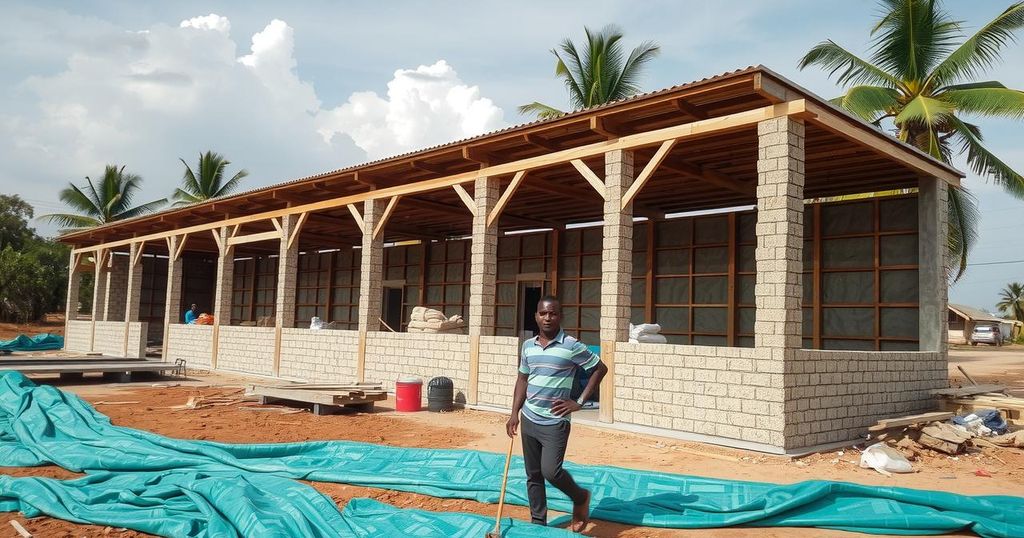Mozambique Initiates Shelter Construction for Cyclone Chido Victims

Mozambique has begun constructing homes for Cyclone Chido victims after the storm caused severe destruction in northern regions. With at least 70 people dead and 600 injured, the government emphasizes the need for resilient building materials. Preceding Cyclone Chido’s impact in Mayotte, the ongoing humanitarian crisis complicates recovery efforts as more storms are anticipated in the region.
This week, Mozambique commenced the construction of shelters for victims of Cyclone Chido, which devastated three northern regions on Sunday, resulting in a reported death toll of at least 70 individuals and injuring approximately 600 others. During a visit to the affected areas, Trade and Industry Minister Silvino Moreno asserted that the government, in collaboration with international partners, is mobilizing efforts to aid the storm victims. Moreno emphasized the importance of building shelters using resilient materials to minimize future destruction.
Cyclone Chido has significantly impacted Mozambique, particularly in the provinces of Nampula, Cabo Delgado, and Niassa, where houses constructed from mud and reeds were largely destroyed. The cyclone previously caused extensive damage in Mayotte, leading to casualties and infrastructure damage, which exacerbated risks for vulnerable populations including asylum-seekers and refugees. As Mozambique braces for additional storms during the rainy season, government agencies and humanitarian organizations are focusing on providing immediate assistance and improving construction practices among affected communities.
In summary, Mozambique’s response to Cyclone Chido highlights the urgent need for disaster preparedness and resilience in building practices. With thousands of families impacted and significant infrastructure damage, collaborative efforts between the government and international partners remain crucial in providing relief. As the country faces ongoing threats from severe weather, continued vigilance and proactive measures will be essential to mitigate the risks for affected populations, particularly in the context of existing health crises such as cholera outbreaks.
Original Source: www.voanews.com







